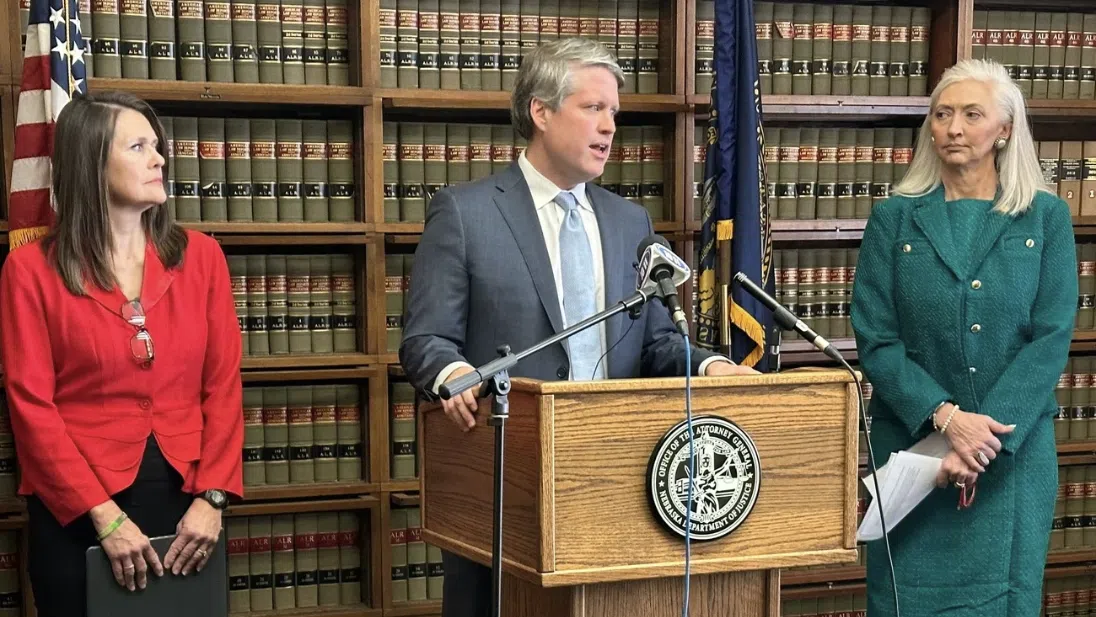Nebraska Attorney General Mike Hilgers was joined by state lawmakers Thursday morning to outline his legislative priorities for 2025.
Two bills, introduced by separate senators, aim to reconfigure the past hemp farming legislation and address the shortage of mental health resources in law enforcement scenarios.
“I am grateful to Senator Kauth and Senator Storer for carrying these bills, which are both critical to our mission of keeping communities safe while supporting law enforcement,” said Hilgers.
Sen. Kathleen Kauth of Omaha will bring forward a tweaked version of a past legislative effort from Hilgers, seeking to close up and regulate the alternative hemp-market, unintentionally created by the Nebraska Hemp Farming Act. In 2018, Congress legalized the cultivation and sale of hemp as an agricultural commodity that could be grown under a state program. To establish a state program for Nebraska farmers, the Legislature passed the Nebraska Hemp Farming Act.
Purportedly illegal products containing synthetic cannabinoids, such as Delta-8, “have emerged and are harming Nebraskans,” said Hilgers. LB123 would make clear that these products are illegal, while still allowing CBD products to be possessed and used and hemp to be farmed under a federal license.
Senator Tanya Storer of Whitman has introduced Hilgers’ second bill, which would create a pilot program that directs the Crime Commission to select a county law enforcement agency that would be authorized to add mental health beds to its existing jail facility or utilize another local facility, to temporarily house individuals who have entered into Emergency Protective Custody (EPC).
Due to a shortage, rural law enforcement officers are often required to take individuals in an active mental health crisis into EPC until the individual can be transported long distances to receive needed care. Storer says these mental health beds will be a safe, non-incarcerated environment, allowing the individual in EPC to receive timely care. This bill will also minimize the burden on law enforcement agencies who struggle with limited available mental health beds and extended travel distances.







